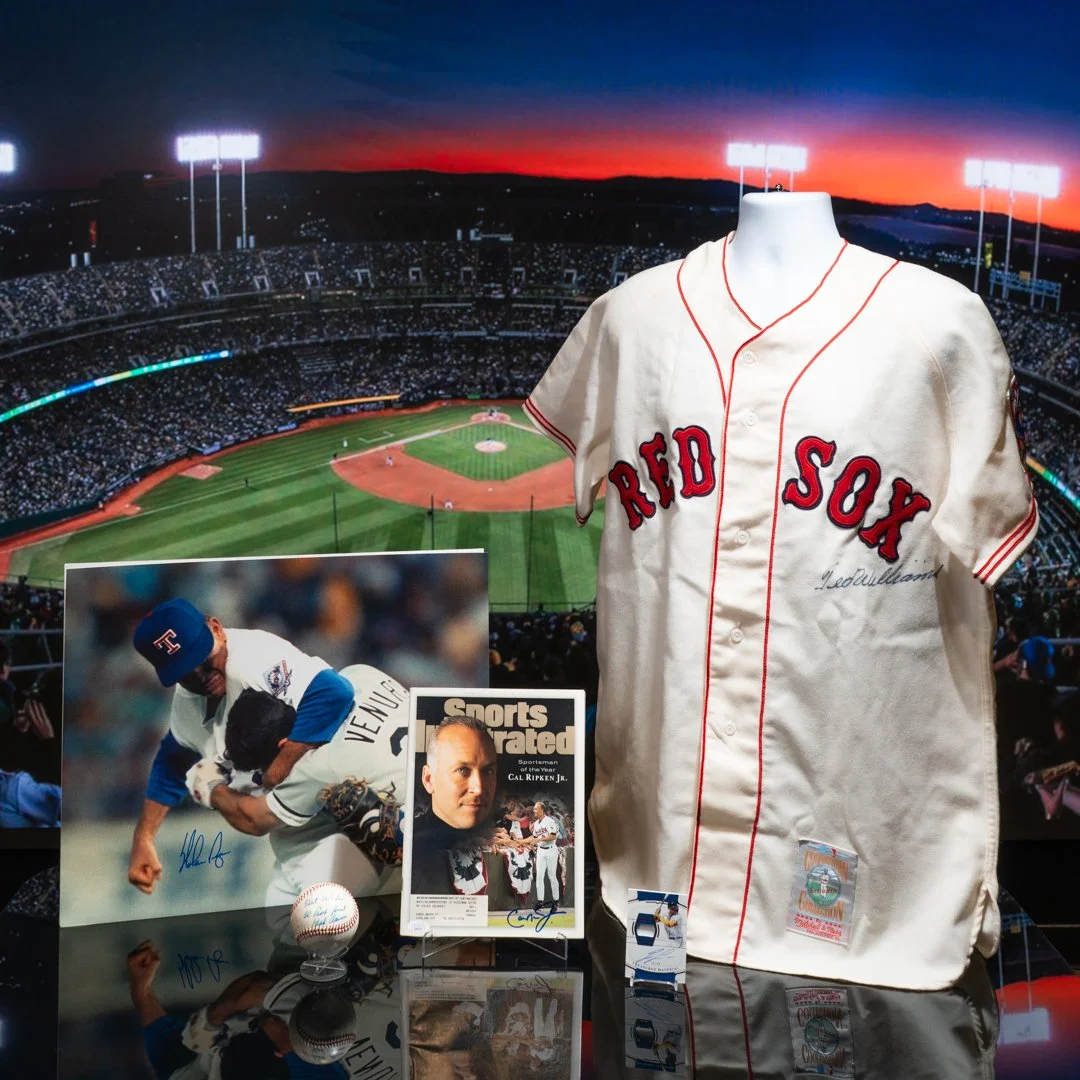Unlocking the Value: Your Ultimate Guide to Selling Sports Memorabilia and Why It Matters
Baseball Memorabilia from Pristine Auction
For collectors who shift their focus to parting with pieces of their collection, questions related to how and where to sell sports memorabilia might arise. Selling sports memorabilia online seems like the clearest answer for most collectors. Selling memorabilia at a local brick-and-mortar might also yield favorable results. Still, landing on the best site or location to meet an individual’s needs might be daunting. Finding the right marketplace to work with is an important step before a collector can consign sports memorabilia.
Where to Sell Sports Memorabilia
For collectors looking for a place to sell their memorabilia, a simple Google search might yield overwhelming results. Discovering a suitable marketplace without an idea for what to look for, or how to comb through the options could start to feel like a shot in the dark pretty quickly. For collectors feeling that pressure, the following options offer a starting point for any collector’s search.
eBay: Let’s start with the marketplace collectors are likely familiar with in some capacity. eBay boasts an already diverse selection of memorabilia for buyers to explore. Whether it’s a 1 of 1 sports card, a jersey patch from Super Bowl 57, or a signed Bryce Harper jersey, eBay’s hosted – and likely sold – a little bit of everything.
Auction: Sellers might also be weighing the possibility of consigning their sports collectibles to an auction house—which may be online, in-person, or a hybrid of both. While this option can appear similar to eBay, many auction houses provide additional services that offer convenience or help maximize the return. As an example, Pristine Auction offers full-service listing, photography, and post-sale customer service (all things a seller would have to do themselves with eBay) so that selling is as simple as sending items in to be listed. For high-price, rarer items, this is often the best route to maximize the value, especially because most auction houses provide marketing support to a curated list of buyers as a part of their service offering. Authenticating the item is an important step in this process, and most auction houses will require this.
Card Shows & Events: A collector looking to sell trading cards may also choose to attend a local card show or a major national event (like The National Sports Collectors Convention). At these events, there are hundreds if not thousands of collectors looking to buy and sell, which can present a great opportunity to sell. Most shows focus on buying and selling sports cards, but many also offer a memorabilia component.
Local Collectors & Hobby Shops: Moving away from the internet, selling to local collectors could make for a positive experience, especially if meeting the new owner of the item is important. Depending on the piece, there could be a suitable buyer in and around any area with their own store or gallery. Stopping by and scanning the collection, or striking up a conversation with the owner of a collection could lead to an opportunity to sell.
How to Sell Sports Memorabilia for Money:
In the sports memorabilia marketplace, values can rise or fall depending on what buyers are looking for at a given time. A Corbin Carroll rookie card might see its value increase should he make another All-Star team or win a major award. The same can be said for other pieces related to players, or teams. Striking while the iron is hot can help collectors maximize profit.
Authenticating sports memorabilia might attract more serious buyers. Should the memorabilia be authenticated, the buyer’s assumed risk that comes with purchasing the item likely shrinks. An authenticated item is one buyers can feel comfortable investing in, which leads to a faster, more lucrative sale.
What is the Best Way to Sell Sports Memorabilia?
For collectors, gauging the value of the item gives both parties a better idea of what an item should sell for. Doing research on the item and recognizing where its value sits before looking to sell helps the seller feel prepared. That preparation could lead to a sale.
As cliche as it might sound, making connections with like-minded collectors can help a seller gauge who might be interested in various items. For collectors looking to take their involvement in buying and selling sports memorabilia more seriously, some contacts can help get a sale started.
For both seasoned collectors and those who might identify as beginners, understanding how and where to sell sports memorabilia is key for maximizing profits and sales. Selling online and in-person can both be effective practices, should collectors know where to do business. Recognizing the trajectory of value over time and which practices will help build a seller’s reputation are also important. Sports memorabilia exists for casual and serious collectors to enjoy. While finding ways to maximize that joy depends on what a seller is looking for, these options aim to get all collectors started.


